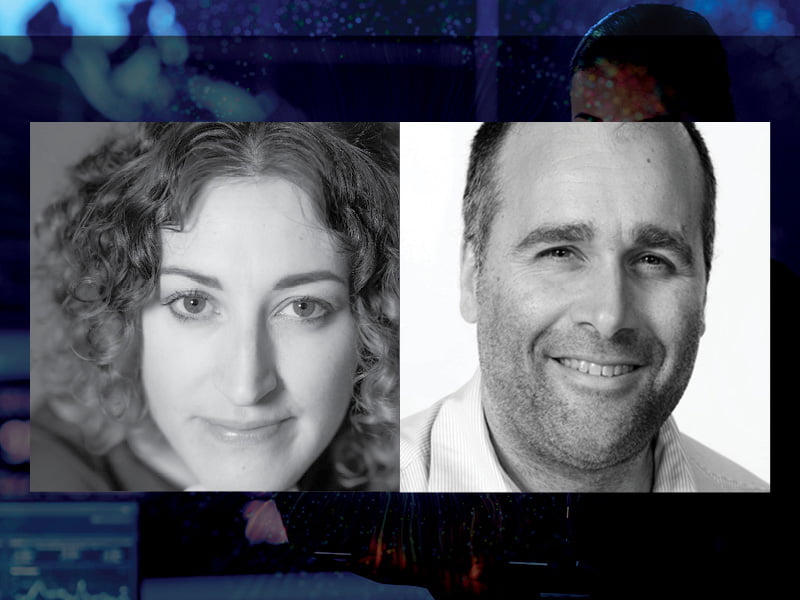There are inherent biases built into a lot of modern technologies that preference the old colonial powers and Anglo-European whiteness as a matter of careless invention. As we stand on the cusp of the Age of Artificial Intelligence and Machine Learning, we might well ask: is this an error that humanity can avoid? Or are we doomed to repeat this folly to our own unending detriment?
Professor Angie Abdilla is a Palawa-Trawlwoolway woman and the founder and chief executive of Old Ways New, a consultancy that employs Indigenous knowledge in the design of places, experiences and technologies. She is also a member of Global Future Council on Artificial Intelligence for Humanity at World Economic Forum.
Joining the Counterpoint Conversations podcast series, Prof Abdilla reflects that – as the oldest continuous culture on earth, living in some of the harshest environments the planet has to offer – there are very sophisticated systems of both knowledge and sustainable governance that permeate Indigenous cultures.

The resilience of Indigenous cultures on the Australian continent for more than 40,000 years, prior to European invasion, is proof itself of that.
“Our governance systems and ways of living with land have supported a rich and health and vibrant culture that still exists today,” she says.
There are learnings that can be drawn from the success of these cultures that can be applied to a variety of design challenges, particularly around social organisation and practices, and conservation and environmental challenges.
As such, exploring the different relationalities and modalities of thinking, with a focus on harmony with environment, systems of balance and sustainability are pertinent to grappling with the predicaments facing modern post-industrial economies and environments.
“My view is governance is core to how well we’ll go with problems like climate change,” says Stefan Hajkowicz, senior principal scientist at Data61. “How well we’ll go through adapting [and] adopting new technologies like artificial intelligence.”
Dr Hajkowicz suggests that while the scientific problems facing experts may be simple enough to identify, the complex policy responses – developing ethical, equitable responses to these problems – presents a whole different set of challenges.
“How do we get the change on the landscape that we need to ensure the continued productivity of these systems, the sustainable use of the land? That is a much harder challenge than the science of proving climate change is happening,” he says.
Indigenous approaches are typically characterised by a holistic, complex and, importantly, temporal view of systems. One example is the application of Indigenous practices in the area of fire management.
Indigenous knowledge systems (IKS) are now being employed by councils around the country to more effectively manage bushfire risk.
Indigenous fire management involves examining the undergrowth and patina of surrounding trees to read the fire history of a given area, account for rainfall patterns over long periods of time, and burn in small patches, carefully and selectively, in a way that is highly controlled, promotes ongoing ecological diversity, protects wildlife and creates fire breaks.
Studies suggest the approach is not just better for environmental wellbeing but is also just more effective and less likely to rage out of control compared with European-designed strip burning.
It’s an example that illustrates a philosophy accounting for the relationship between human animals and the environment within which they dwell that is common across many First Nations people around the globe. It’s a philosophy that sees people as part of the ecosystem, rather than a creature with dominion over nature – some divine right to plunder and accumulate resources.
“We, as a society have to start looking at the business models that have typically the capitalist business model,” Professor Abdilla said.
“How do we start to shift people’s minds to understand what are the different ways in which we can start looking at our relationship to the environment and our natural resources and think about distribution as opposed to accumulation?”
And when it comes to technology, and more specifically artificial intelligence and machine-learning, there is a real risk of building in the same kinds of narrow thinking and blind spots that we have seen applied to other areas of cultural and environmental management. Prof Abdilla says it is important to embed culturally considerate and diverse values within the programming of the AI products that will come to shape our world in the coming decades.
“We can explore how [IKS] cultural insights can be translated into standards, cultural standards, cultural protocols,” says Professor Abdilla. “And then what is that transitional language that’s required to then embed those values and principles into the programming logic of the machine itself.”
The complex and holistic manner of IKS thinking might also help humanity grapple with some of its biggest and more long-standing challenges. Perhaps even by applying the advanced potential problem-solving capabilities of AI that has been acculturated with IKS.
For example, the field of human security studies is one that is as complex as they come. Safeguarding human security has been a priority for the United Nations since the 1970s. Broadly speaking, it is commonly defined as the right to the freedom from want, the freedom from fear and the freedom of human dignity.
The puzzle to secure human security for all the worlds’ people is a mind-bendingly complex maze of differing and interrelated challenges. It encompasses poverty, housing security, food security, access to medical care, education, suppression of violence in all its forms, suffrage for women, environmental security and access to clean water.
These are exactly the kinds of enormous complex problems that IKS might be best poised to solve.
The Counterpoint Conversations podcast series was produced as a partnership between Verizon Business Group and InnovationAus.com.
Do you know more? Contact James Riley via Email.
